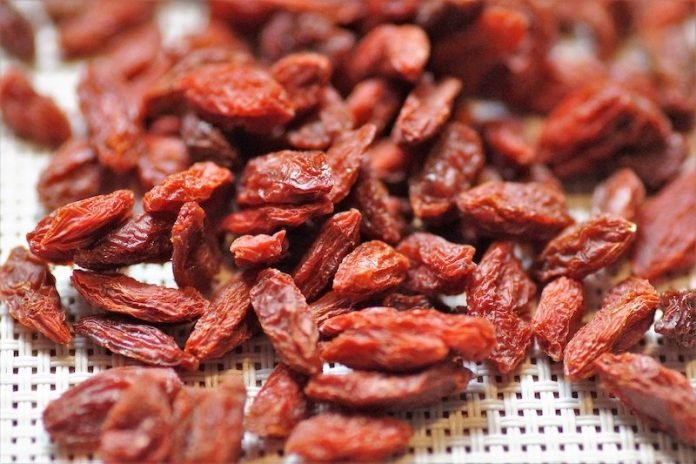
In a new study from the University of California, Davis, researchers found regularly eating a small serving of dried goji berries may help prevent or delay the development of age-related macular degeneration, or AMD, in healthy middle-aged people.
AMD is the leading cause of vision loss in older people, and is estimated to affect more than 11 million in the United States and 170 million globally.
AMD affects your central field of vision and can affect your ability to read or recognize faces.
In the study, the team found that 13 healthy participants aged 45 to 65 who consumed 28 grams (about one ounce, or a handful) of goji berries five times a week for 90 days increased the density of protective pigments in their eyes.
In contrast, 14 study participants who consumed a commercial supplement for eye health over the same period did not show an increase.
The pigments that increased in the group that ate goji berries, lutein and zeaxanthin, filter out harmful blue light and provide antioxidant protection. Both help to protect the eyes during aging.
The team says the higher the lutein and zeaxanthin in your retina, the more protection you have.
Even in normal healthy eyes, these optical pigments can be increased with a small daily serving of goji berries.
Goji berries are the fruit of Lycium chinense and Lycium barbarum, two species of shrubby bushes found in northwest China.
Dried berries are a common ingredient in Chinese soups and are popular as herbal tea. They are similar to raisins and eaten as a snack.
In Chinese medicine, goji berries are said to have “eye brightening” qualities.
The team researched the bioactive compounds in goji berries and found they contain high quantities of lutein and zeaxanthin, which are known to reduce the risk of eye diseases related to AMD.
The form of zeaxanthin in goji berries is also a highly bioavailable form, meaning it is readily absorbed in the digestive system so the body can use it.
The current treatment for intermediate stages of AMD uses special dietary supplements, called AREDS, that contain vitamins C, E, zinc, copper and lutein and zeaxanthin.
No known therapy has yet been shown to impact the early stages of AMD.
The cause of AMD is complex and multifactorial, and involves a mix of genetic risks, age-associated changes, and environmental factors like smoking, diet and sun exposure.
Early stages of AMD do not have symptoms; however, physicians can detect AMD and other eye problems during a regular comprehensive eye exam.
If you care about diet, please read studies about vitamin B3 that could help treat vision loss, and diet that reduces the risk of cognitive impairment, dementia.
For more information about health, please see recent studies about how to heal a leaky gut with diet, and results showing are some foods super bitter to you? You may have lower COVID-19 risk.
The study is published in Nutrients. One author of the study is Glenn Yiu.
Copyright © 2022 Knowridge Science Report. All rights reserved.



